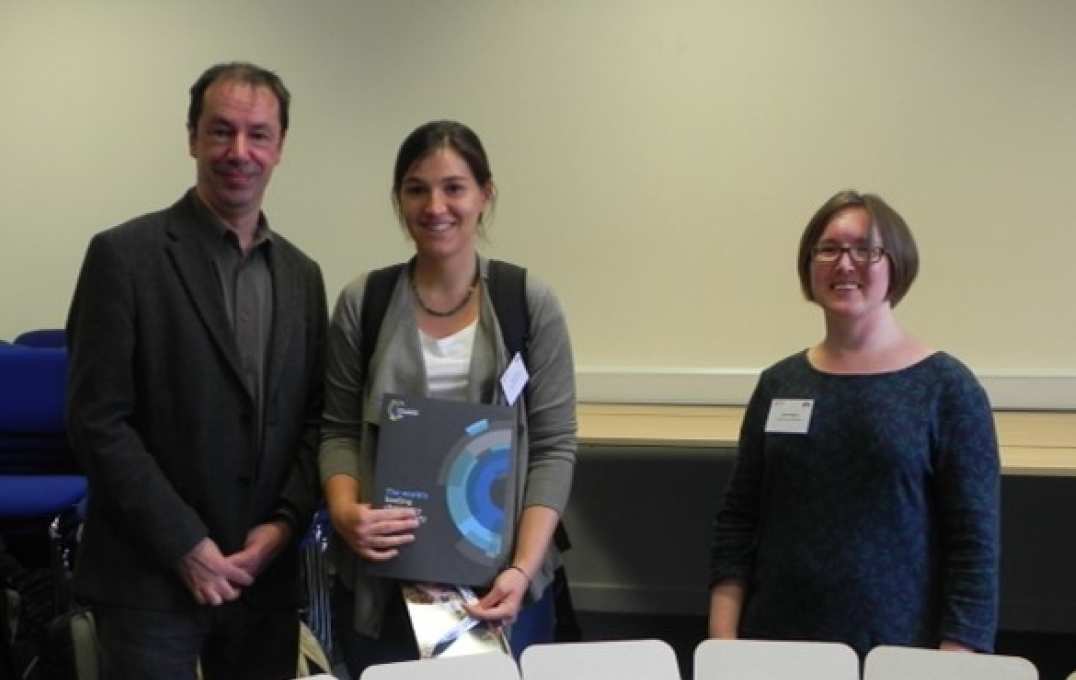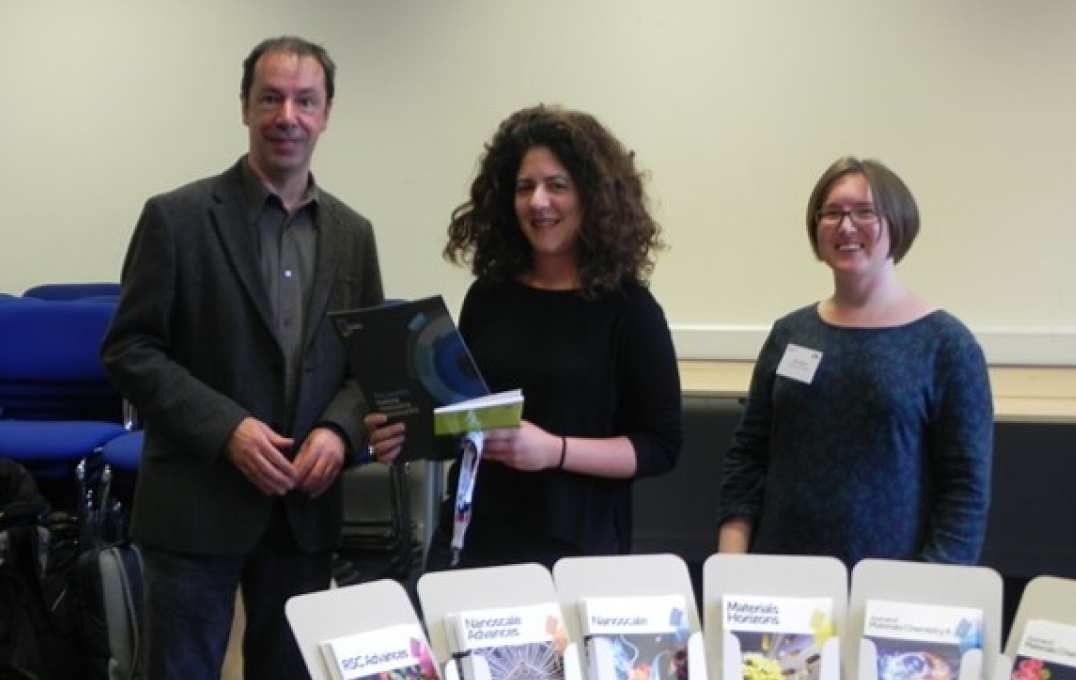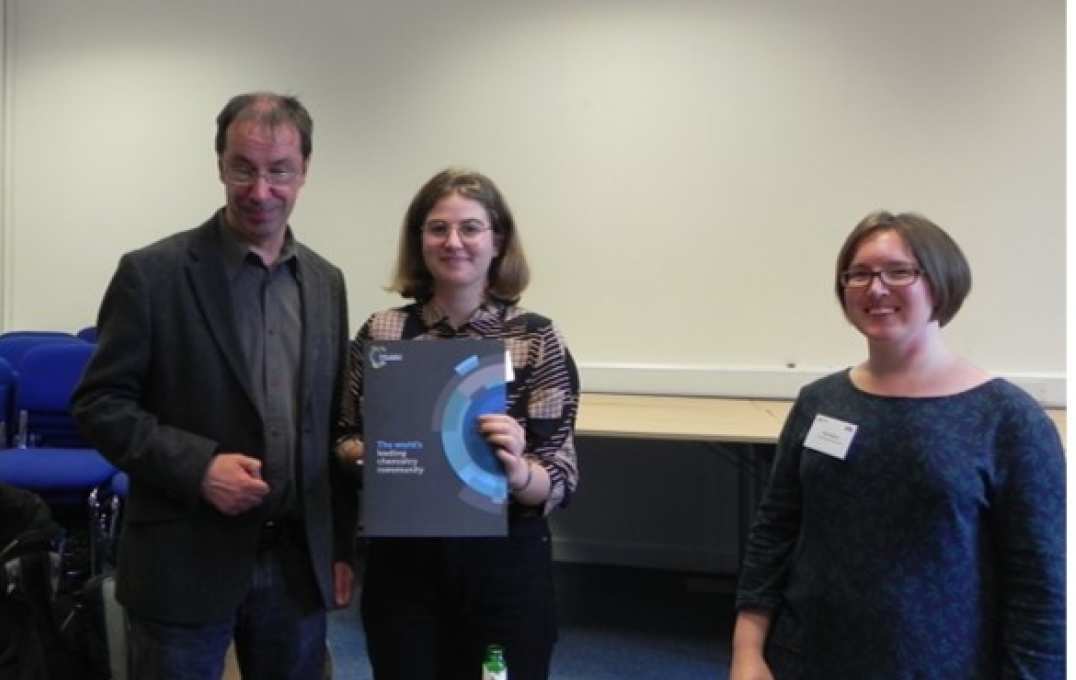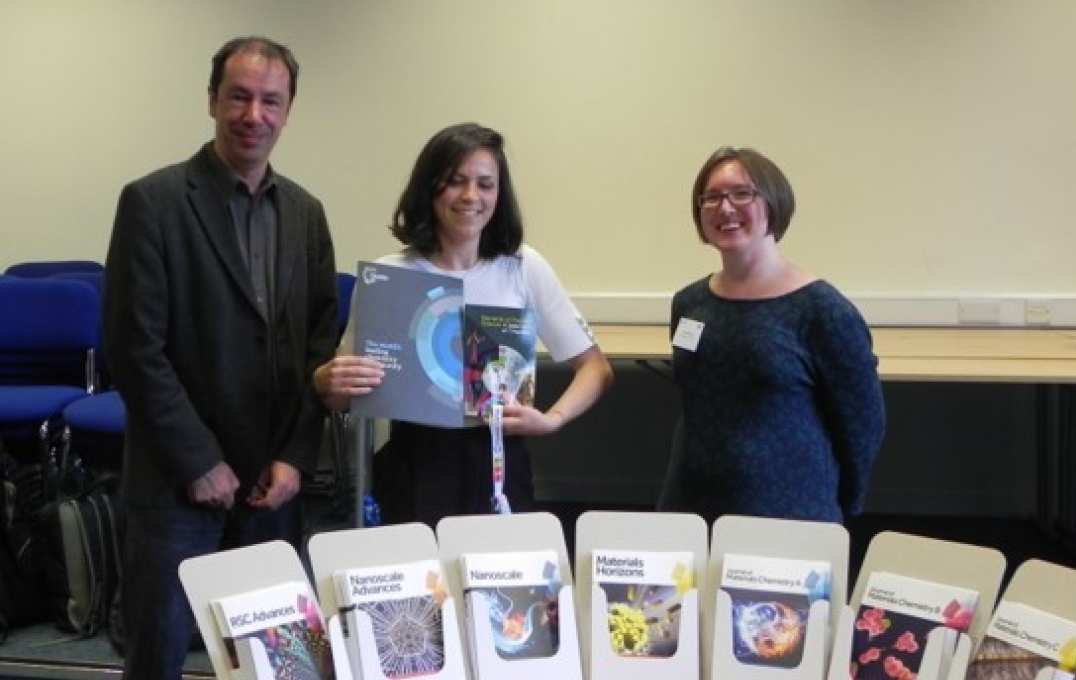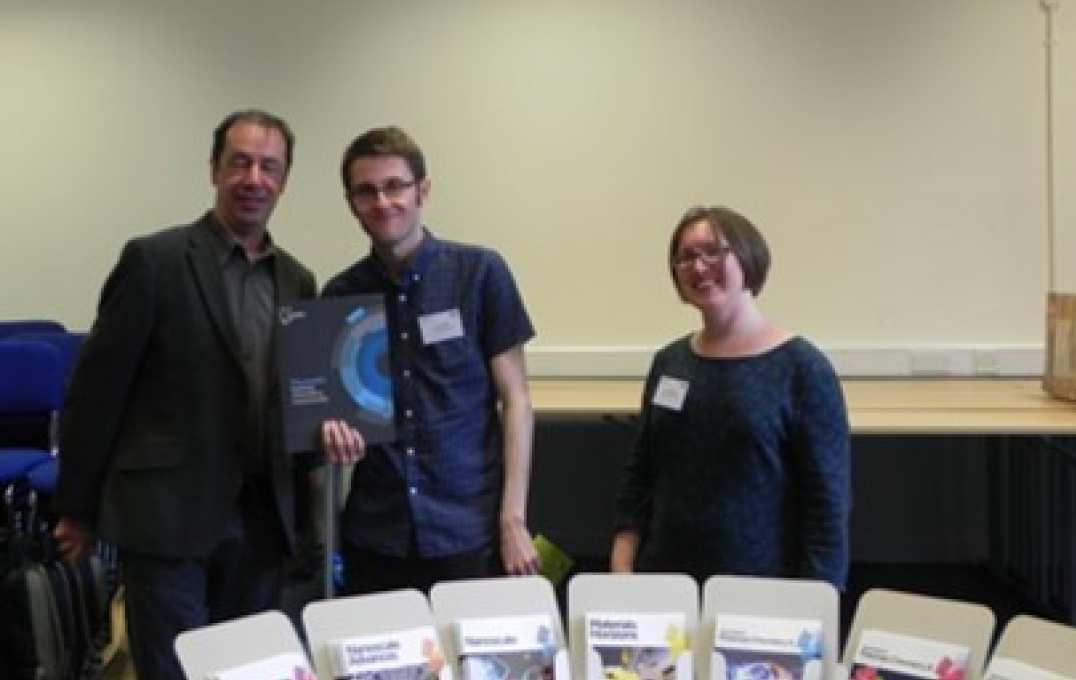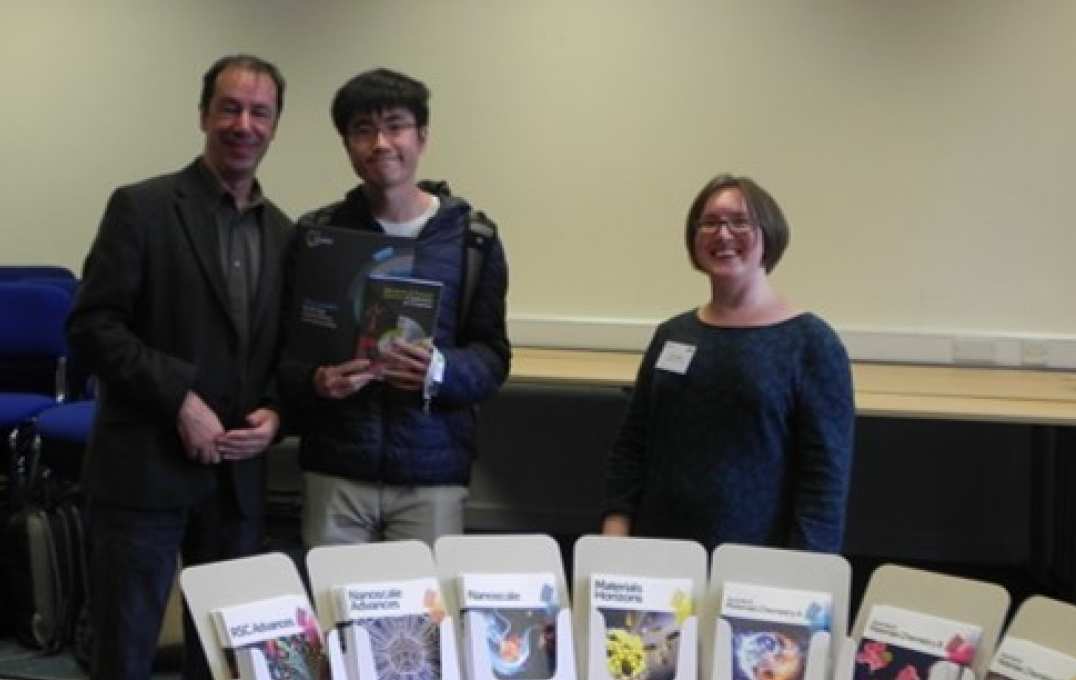Prize winners at the 2019 CPE Annual Symposium
by Lisa Bushby
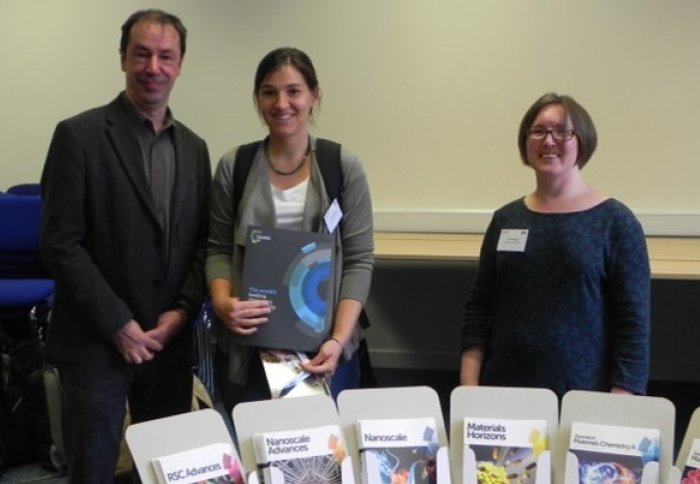
Posters and talks at the CPE Annual Symposium were outstanding in 2019, with all of our prize winners delighted with their success.
In the first of the prizes to be awarded by Prof James Durrant, CPE Director and Dr Rose Wedgbury of the RSC, PhD student Martina Rimmele, took the audience choice award after her superb three-minute flash presentation on her poster Synthesis and Characterisation of Thioalkyl- and Sulfone-substituted Poly(p-phenylene vinylene)s (PPVs). All delegates were invited to vote online for their favourite flash presentation. Martina said: "I really enjoyed this year’s CPE Symposium! The speaker’s talks were very impressive, ranging all over the field of organic electronics, from the materials synthesis to the device processing and end-use applications. I am glad that as students, we also had the opportunity to present our research in the friendly atmosphere the symposium offered. As I am new to the College, it was furthermore an excellent opportunity to get an insight into the remarkable research that is done here at Imperial across different departments."
It was PhD student Tom Hopper who collected the prize for best communicated talk after a riveting 20 minute presentation describing how his research uses an ultrafast “pump-push-probe” technique to study the sub-ps cooling dynamics in LHP thin films and nanocrystals. He demonstrated that cooling in the all-inorganic CsPbBr3 is slower than its hybrid counterparts (eg FAPbBr3) in the high carrier density regime, owing to the relative abundance of optical phonon modes associated with the organic cation. He went on to discuss the thermal equilibration between cold and hot states in the single- and multiple-exciton-per-NC cases, and the effect of surface ligands on the cooling dynamics.
Tom said “I am delighted to have been awarded the best communicated talk prize at this year’s symposium. I always look forward to the CPE Annual Symposia because the research community at Imperial is very supportive, and there are always interesting talks encompassing a wide range of topics." Ever quick witted, he added: "I particularly enjoyed Erwin Reisner’s talk on solar fuels. I was surprised to hear that photocatalytic nanoparticles could be used in body disposal, and hope to find use for this in my own research.”
"The CPE Symposium was a great experience! It was my third time attending the Symposium and I know that the organizers always put a lot of effort to invite world-class researchers that can cover various aspects of plastic electronics. I really enjoyed the quality of talks and their accessibility to more general audience. I'm glad I was given an opportunity to present my research at the symposium and discuss my idea with other participants afterwards." So Anna Szumska commented after collecting her prize for best science talk.
We all learned a lot from Anna's talk on applying group theory and computational methods to design molecular materials in which spin can be injected optically via circularly polarised light as an analogy to GaAs and other III-V semiconductor crystals in order to prioritise structures for further study.
Julianna Panidi, a member of Cohort 7 from the PE-CDT, won the prize for best communication poster Enhancing Charge Transport Properties of Thin Film Transistors with Molecular Additives, she commented: "I had a great time at the CPE Symposium. It gave me the opportunity to meet several top-researchers in the field from all over the world and to get an update on their latest results, by attending their talks. During the poster session we presented our work in a friendly environment, which lead to initiate interesting collaborations."
Wenjun Xu's poster Unusual Length Dependence of the Conductance in Cumulene Molecular Wires won him the best science poster prize. Wenjun, a PhD student in Henry Anderson's group at Oxford University said: "I had a very good time at the CPE Symposium. The symposium is well organized, and there are many excellent researchers presenting there. Attending the symposium gave me a great opportunity to know more about the work that related to the plastic electronics, including materials synthesis and devices fabrication, and the mechanism research results. I learnt quite a lot of new science and met lots of distinguished researchers. It was a precious experience to attend the CPE Symposium 2019."
Finally, Rhea Kumar won the prize for best designed poster, entitled Control of Donor-acceptor Photophysics through Structural Modification of a 'Twisting' Push-Pull Molecule. She said: "The CPE Symposium is an excellent amalgamation of exciting research at the forefront of progress across a diverse collection of fields. I first attended the event in 2018 when I was just one week into my PhD and I couldn’t have felt more grateful to be in such a position; a year later I was equally fascinated by the event and the opportunity to be in that environment. It’s amazing to listen to speakers from all over the world, but it’s just as inspiring to learn of the incredible projects going on within Imperial itself. I am thrilled that I was able to present my own work alongside such world-class research."
We would like to thank the Royal Society of Chemistry for sponsoring this year's prizes. In particular the Journals of Materials Chemistry A & C, Materials Horizons and Sustainable Energy & Fuels.
Article text (excluding photos or graphics) © Imperial College London.
Photos and graphics subject to third party copyright used with permission or © Imperial College London.
Reporter
Lisa Bushby
Department of Physics
